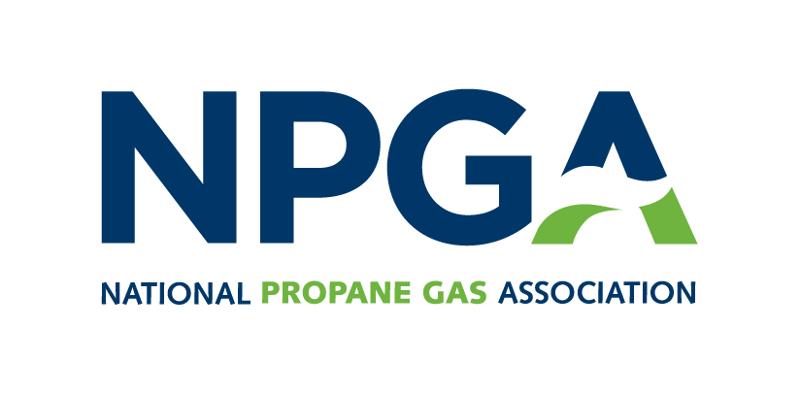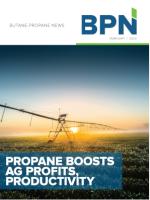Wednesday, February 19, 2020
(February 19, 2020) — Following the Midwest supply issues in the fall of 2019 that consumed most of their attention, the National Propane Gas Association’s (NPGA) Jeff Petrash, vice president and general counsel, and deputy counsel regulatory affairs, Sarah Reboli, are looking toward new concerns for 2020 and the coming decade. BPN recently spoke with the members of NPGA’s legal team about the successes and challenges the industry faces as it moves into 2020. “We still have a little unfinished business following up with FERC [Federal Energy Regulatory Commission] regarding the supply challenges,” Petrash said. “Then we have plenty to work on in the new decade.”

Petrash continues to stress that decarbonization will be a huge focus for many years to come. “Electrification will be a big issue for a number of years ahead for NPGA,” Petrash said. “We had some in-depth discussions with NPGA’s Executive Committee and got some direction from them in August. Further discussion is taking place now.” He noted that the American Petroleum Institute (API) is starting to aggressively address the electrification challenge. “They are somewhat the ‘big kid on the block’ in the oil and natural gas industry,” he added.
GOING BACK TO FERC
This summer, beginning in June, Petrash will once again address with FERC how index pricing is set for liquids shipped on pipelines. “Five years ago, we spent about $190,000 to $200,000 in legal and consulting fees and saved the propane industry at least $250 million,” he said. “We worked in partnership with Valero Refining and Airlines for America then. Anyone who is a shipper of liquids or who consumes a fuel of any kind has an interest. All go through pipelines. We hope to work with more partners this time around to be more effective as well as to defray costs.”
Petrash also noted a few natural gas expansion issues he is keeping an eye on in Utah and Iowa. In Iowa, Black Hills Energy is proposing a new pipeline in the Dubuque area. They contend that it will assist in providing security of supply to their existing customers, but it will also facilitate the addition of new customers. In Utah, Dominion (previously known as Questar) proposes to bring natural gas service to Eureka, Utah. This proposed service would be subsidized by current Dominion customers in accordance with Utah legislation previously enacted.
Reboli noted that January 6 was a deadline set by the Federal Motor Carrier Safety Administration (FMCSA) for employers of CDL drivers to perform queries for commercial drivers’ alcohol and drug testing on the Drug & Alcohol Clearinghouse. FMCSA designed the Clearinghouse to share information about commercial drivers’ alcohol and drug violations among employers, state law enforcement, and state driver licensing agencies. The objective is to prevent some drivers from misrepresenting their violations to a new employer and/or in a new state. The information in the Clearinghouse would not be available to insurance providers or lawyers.
In addition, Reboli said that FMCSA proposed to amend the 2016 final rule, “Minimum Training Requirements for Entry-Level Commercial Motor Vehicle Operators” (entry-level driver training, or ELDT, final rule), by extending the compliance date for two provisions from the rule. The date for training providers to upload entry-level driver training certification information into the Training Provider Registry and for state driver licensing agencies to receive driver-specific ELDT information is extended from February 7, 2020, to February 7, 2022. This will provide FMCSA additional time to complete development of the electronic interface that will receive and store ELDT certification information from training providers and transmit that information to the state driver licensing agencies. Reboli shared that FMCSA may delay the entire regulation by two years, but that a final notice by FMCSA has not yet been published.
MORE HOS CHANGES?
FMCSA is also considering changes to the Hours of Service (HOS), but they were not finalized by the end of the year. The agency has been tight-lipped regarding changes that may expand and extend HOS requirements.
While the current White House is supportive of cutting red tape and regulation, Reboli noted that the process is often slow. “We continue to push for an expansion to the air-mile radius propane vehicles can drive before being required to maintain record of duty status (RODS) reports,” Reboli said. “Infrastructure has improved and bobtail technology has advanced as well since the requirements were written 50 to 60 years ago. We would like to see an increase in the air-mile radius from 100 to 300 miles. This would amount to a savings of $11 million in industry paperwork per year.” — Pat Thornton

Petrash continues to stress that decarbonization will be a huge focus for many years to come. “Electrification will be a big issue for a number of years ahead for NPGA,” Petrash said. “We had some in-depth discussions with NPGA’s Executive Committee and got some direction from them in August. Further discussion is taking place now.” He noted that the American Petroleum Institute (API) is starting to aggressively address the electrification challenge. “They are somewhat the ‘big kid on the block’ in the oil and natural gas industry,” he added.
GOING BACK TO FERC
This summer, beginning in June, Petrash will once again address with FERC how index pricing is set for liquids shipped on pipelines. “Five years ago, we spent about $190,000 to $200,000 in legal and consulting fees and saved the propane industry at least $250 million,” he said. “We worked in partnership with Valero Refining and Airlines for America then. Anyone who is a shipper of liquids or who consumes a fuel of any kind has an interest. All go through pipelines. We hope to work with more partners this time around to be more effective as well as to defray costs.”
Petrash also noted a few natural gas expansion issues he is keeping an eye on in Utah and Iowa. In Iowa, Black Hills Energy is proposing a new pipeline in the Dubuque area. They contend that it will assist in providing security of supply to their existing customers, but it will also facilitate the addition of new customers. In Utah, Dominion (previously known as Questar) proposes to bring natural gas service to Eureka, Utah. This proposed service would be subsidized by current Dominion customers in accordance with Utah legislation previously enacted.
Reboli noted that January 6 was a deadline set by the Federal Motor Carrier Safety Administration (FMCSA) for employers of CDL drivers to perform queries for commercial drivers’ alcohol and drug testing on the Drug & Alcohol Clearinghouse. FMCSA designed the Clearinghouse to share information about commercial drivers’ alcohol and drug violations among employers, state law enforcement, and state driver licensing agencies. The objective is to prevent some drivers from misrepresenting their violations to a new employer and/or in a new state. The information in the Clearinghouse would not be available to insurance providers or lawyers.
In addition, Reboli said that FMCSA proposed to amend the 2016 final rule, “Minimum Training Requirements for Entry-Level Commercial Motor Vehicle Operators” (entry-level driver training, or ELDT, final rule), by extending the compliance date for two provisions from the rule. The date for training providers to upload entry-level driver training certification information into the Training Provider Registry and for state driver licensing agencies to receive driver-specific ELDT information is extended from February 7, 2020, to February 7, 2022. This will provide FMCSA additional time to complete development of the electronic interface that will receive and store ELDT certification information from training providers and transmit that information to the state driver licensing agencies. Reboli shared that FMCSA may delay the entire regulation by two years, but that a final notice by FMCSA has not yet been published.
MORE HOS CHANGES?
FMCSA is also considering changes to the Hours of Service (HOS), but they were not finalized by the end of the year. The agency has been tight-lipped regarding changes that may expand and extend HOS requirements.
While the current White House is supportive of cutting red tape and regulation, Reboli noted that the process is often slow. “We continue to push for an expansion to the air-mile radius propane vehicles can drive before being required to maintain record of duty status (RODS) reports,” Reboli said. “Infrastructure has improved and bobtail technology has advanced as well since the requirements were written 50 to 60 years ago. We would like to see an increase in the air-mile radius from 100 to 300 miles. This would amount to a savings of $11 million in industry paperwork per year.” — Pat Thornton


